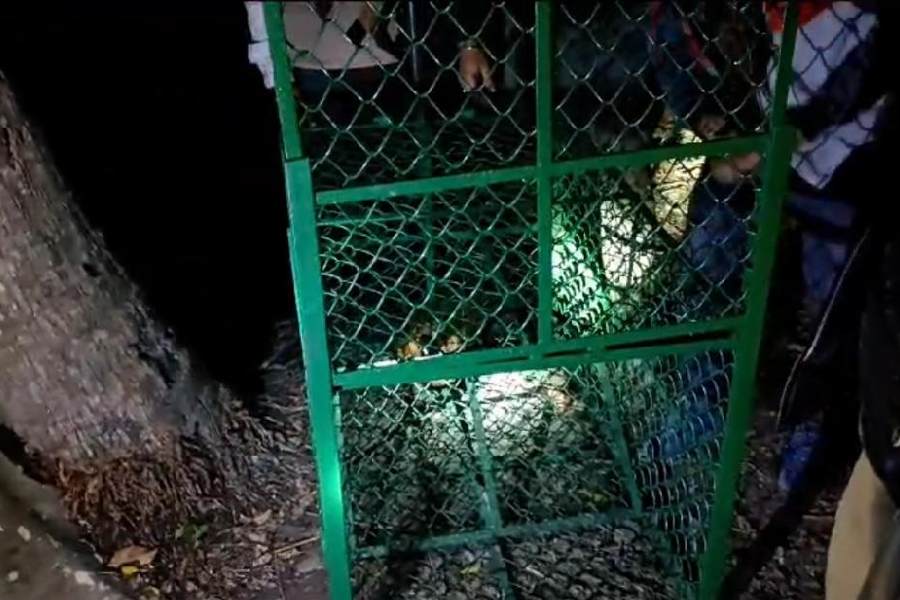At least eight persons have been injured in what Bengal’s forest officials said were “wild animal attacks” in a pocket of Diamond Harbour in South 24-Parganas.
The nature of the wounds and interactions with the injured have led the forest officials to suspect one or more golden jackals behind the attacks.
“Nothing can be said with certainty now. But the description that more than one injured person has provided suggests that a golden jackal or more than one could be behind the attacks,” said Milan Mandal, the divisional forest officer of the South 24-Parganas division.
The victims are said to have told the forest officials that the animal that attacked them did not look like a dog. Jackals are a cross between dogs and foxes.

A loudhailer being used to alert villagers in Diamond Harbour.
All eight are under treatment at Diamond Harbour Superspeciality Hospital. Their conditions are not critical, said Mandal.
The attacks were first reported on Saturday evening. Till Sunday evening, eight persons were injured in two neighbourhoods — Mosharhat Gram Panchayat in Diamond Harbour I block and Sarisha in Diamond Harbour II block.
Foresters reported “panic” among local people.
A team of 40 forest personnel is conducting a search. Two trap cages — one in each area — have been set up.
No pugmarks were found, said an official.
The forest department has been using loudhailers to tell villagers to avoid stepping out after sundown.
“Golden jackals are usually very shy and nocturnal animals. While reports of
jackals attacking humans are not unprecedented, they are very unusual,” said a forest official.
“A jackal will not attack a human being for food. At least not when the animal is not part of a pack. But it can retaliate if attacked,” he said.
Golden Jackal (Canis aureus) is believed to be widely distributed in south Bengal but there is no precise estimate of the population.
Often spotted on the roads near forests in the night, they are found in and outside protected areas, including human-dominated landscapes.
In Calcutta, the grassland off the airport runway has for many years been a habitat for jackals, which have in the past entered the runway and disrupted flights.
Tollygunge Club and the Royal Calcutta Golf Club (RCGC) are also home to a pack of jackals.
Jackals are omnivorous scavengers and often help farmers by eating rodents. A flexible diet helps them to thrive in urban habitats.
In November 2022, jackals attacked at least 17 residents in Nadia’s Palashipara.
A year before that, some 40 people were reportedly injured by a jackal in Bihar’s Katihar district. The animal was eventually beaten to death.
